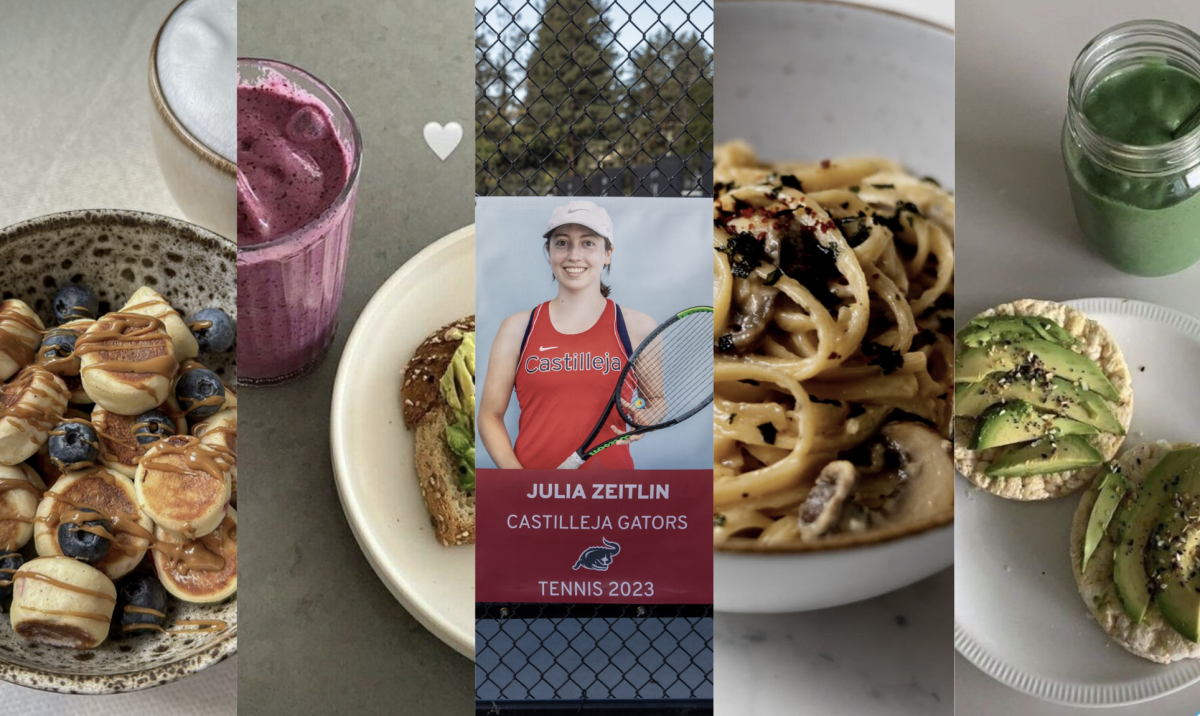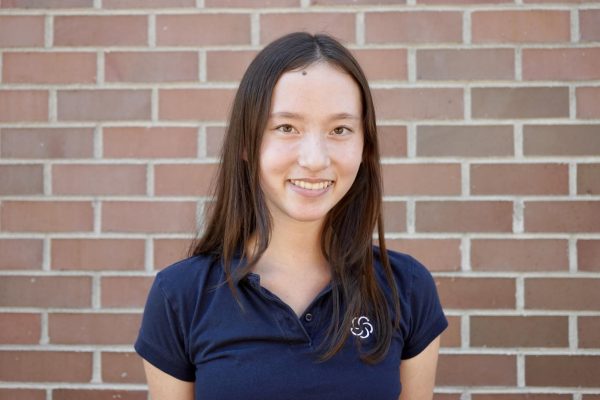Julia Zeitlin’s celebrity status at Castilleja encompasses her role as a passionate climate activist, captain of the varsity tennis team, ASB representative and vegan. For the past seven years, Zeitlin has remained committed to a vegan diet, making her among the 1% of vegan individuals in the U.S.
Zeitlin became a vegetarian when she was five years old, but she and her family eventually decided to go vegan due to health and environmental impacts. “I think people often discount how big of an impact what you eat has on the environment,” she expressed. “Plant diets lead to 75% less climate heating emissions, water pollution and land use than meat-rich ones. That’s a big, big comparison.”
According to Zeitlin, simply changing what you consume is “one of the biggest things an individual can do to reduce their personal greenhouse gas emissions.”
Zeitlin expressed that animal rights concerns significantly contributed to her decision to go vegan, since the impact of the food industry on animal suffering contradicted her core family values. “It’s hard because much of the way we function as a society really separates the animal life from the food,” she said, emphasizing the importance of thinking about where your food comes from.
“When you get chicken nuggets, you don’t see the chickens in tiny cages, all stacked up. I know it’s upsetting to think about, but instead of seeing that, you just see the tasty food.”
In addition to her vegan diet, Zeitlin also incorporates environmental sustainability into her everyday life, through everything from fashion to transportation. She encourages thrifting as well as seeking out ethical and sustainable brands. And she is often spotted biking to school or the Rinconada tennis courts on her electric bike.
As an accomplished tennis player, Zeitlin strives to denounce common misconceptions surrounding being vegan as an athlete. Her current tennis coach is vegan, but she recalled how her first coach once told her, “What are you doing? You need to eat meat.” However, Zeitlin stressed that several prominent athletes follow a vegan diet, including Alex Morgan, Lewis Hamilton and Novak Djokovic.
“A lot of industries profit off of misconceptions and misinformation,” she said, “such as the idea that you need to eat animals to gain muscle and strength.” She continued, “Perhaps the biggest misconception [about vegans] is that you don’t get enough protein, which is not true.” According to Zeitlin, vegan athletes just have to make more of an effort to think about what foods contain protein, whether that be legumes, grains, tofu or fruits.
“There’s also the myth that being vegan is much more expensive,” she added. “While meat and dairy replacements, such as vegan Parmesan cheese, may be more expensive, major protein substitutes like grains and beans are much cheaper than meat.”
Castilleja’s lunch often includes a vegetarian option on the right side of the cafeteria. “It would be really great if [the vegetarian option] goes the extra step of being vegan, because if there is cheese or something on it, the food becomes inaccessible for vegans and those trying to eat less dairy,” Zeitlin said.
On days when the Castilleja lunch doesn’t offer foods she can eat, she resorts to a sunbutter and jelly sandwich. Other lunches are more promising, with food options including curry, pasta, grains and fajitas.
“Those are all options that I think a lot of people like and that are totally vegan,” she said. In addition, she suggested bringing back “meatless Mondays,” emphasizing the positive environmental impact of a consistent plant-based diet.
“I know a lot of people don’t have the option to decide how or what they eat, and that’s totally okay,” Zeitlin concluded. “I’m not making any judgments about people. I just think if you do have that option to control or change what you eat for a certain meal, take that opportunity and make that choice when you can.”



